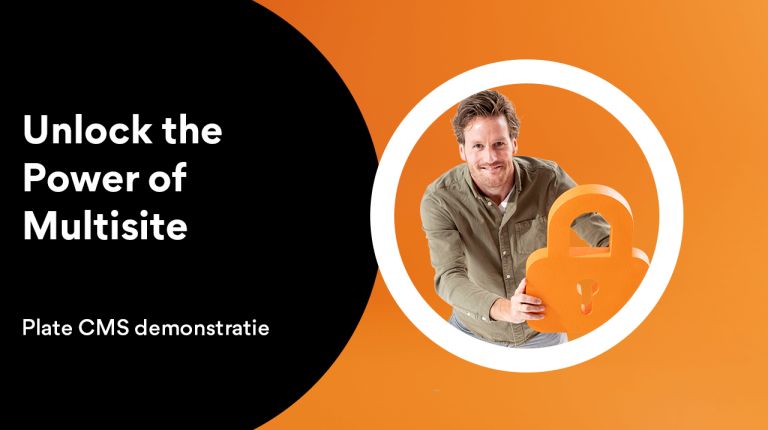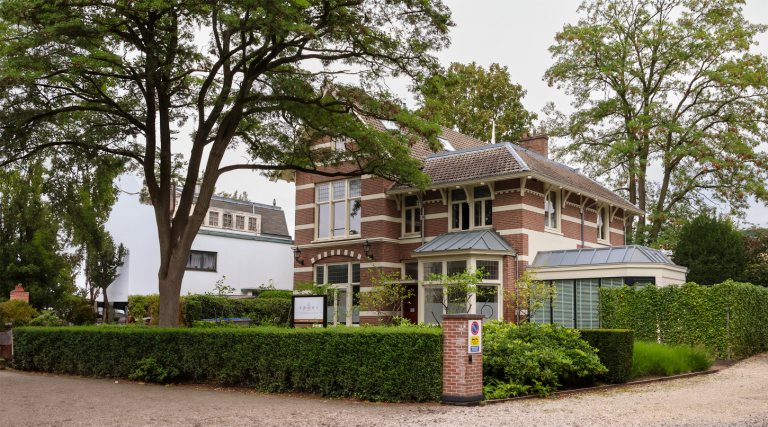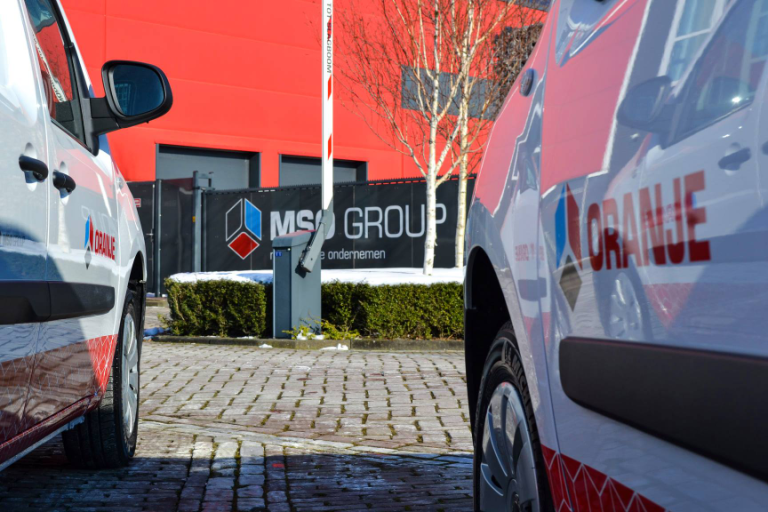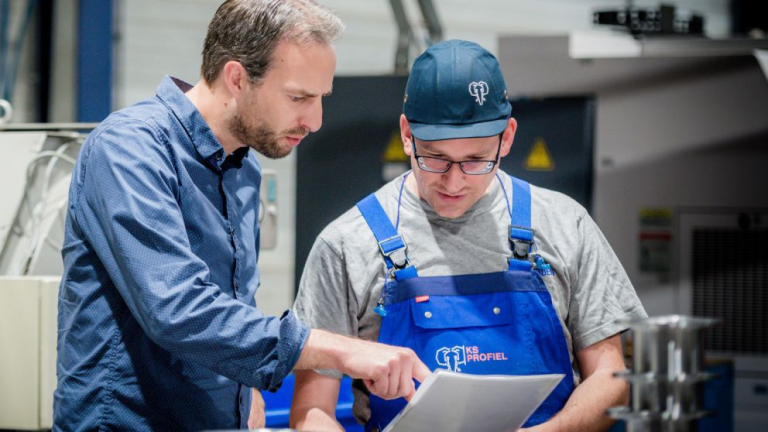Wordpress Multisite versus Plate
Plate and WordPress are Content Management Systems (CMSs). Originating as a platform to start a blog, WordPress has become a popular CMS thanks to numerous plugins that developers from all over the world can write and offer on the platform.
This is possible because WordPress is "open source. WordPress is at its core a basic CMS with limited features, but by purchasing plugins you can turn it into an advanced CMS.
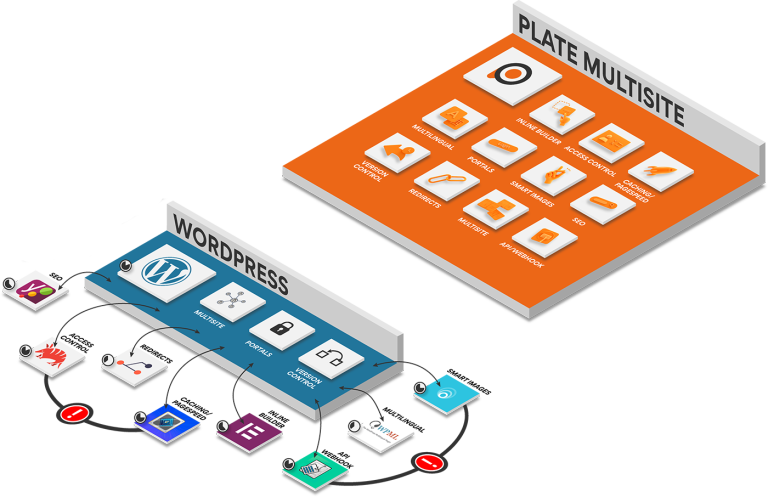
Differences between Plate & Wordpress?
Plate, unlike WordPress, is a multi-tenant hosted CMS. This means that we at Plate take full ultimate responsibility for the CMS and the security of the CMS and all websites running on it.
With Plate, all customers run on one version of the CMS and benefit from centrally implemented security and maintenance updates. Plate was developed with a strong vision of making content scalable and manageable, and with that in mind it offers multisite, for example, as a standard feature for organizations with multiple Web sites and a need for centralized management and maintenance.
WordPress, like Plate, can be used as a multisite solution, but with WordPress you have to configure it manually. You need several plugins to run WordPress as a stable multisite solution with functionalities around multi-content (pushing content back and forth) and multilanguage. All of these plugins often have different developers and so an update to one plugin can break another plugin. Therefore, multisite within WordPress usually results in a lot of extra maintenance.
With Plate, all the necessary multisite functionalities are standard in the platform without the need for plugins. If an existing site needs to be published in another language in addition to Dutch, it is literally 10 seconds work in Plate; no plugin or expensive developer is needed. Content is then easily duplicated between the different language versions. With WordPress, all these features require a developer.
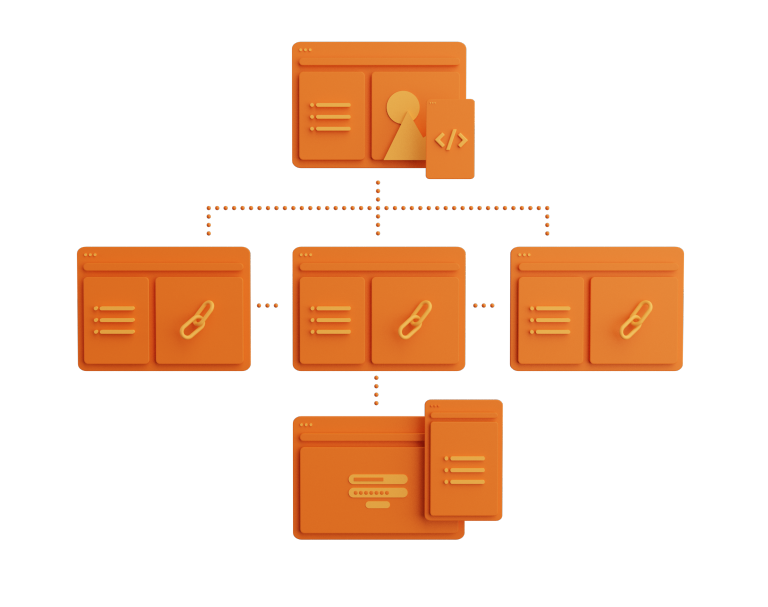
Feature-rich or plugin-rich CMS?
The advantage of WordPress is directly its disadvantage: there are a lot of plugins. This ensures that you can potentially quickly set up an advanced multisite solution. The downside is that you therefore need a lot of external plugins. All these plugins are developed by other developers without a central vision and without agreements on updates and interdependencies.
The more plugins the better the coordination between them must be. For a developer this may not be such a big problem, but for a company (or in the case of multisite a business group or organization) this is often far from ideal. With a multisite on WordPress, you are quickly and often dependent on (external) development, and the chance of a security issue (and thus downtime) or a plugin not working is significant.
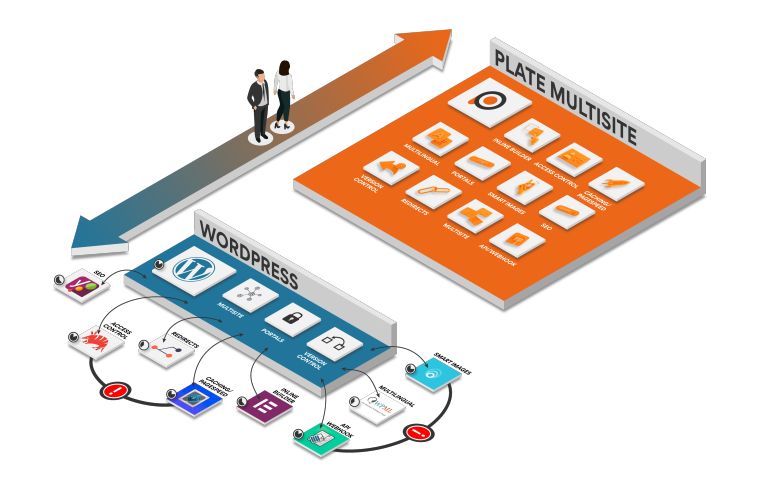
As a WordPress alternative, Plate offers a feature-rich CMS. The 'multisite' application is included in the architecture of the platform, so all the features you need for a multisite work in sync with each other and are updated centrally. This ensures that in no time you have a complete solution ready to go that is continuously developed and centrally secured. If you want to know more about Plate's multisite solution, you can read an introduction to multisite here or check out the features that come standard in a Plate multisite.
Want to see the important multisite highlights in 10 minutes? Then watch this demo video. Want an even deeper look at the differences between Plate and WordPress? Schedule a free consultation with one of our CMS experts below.
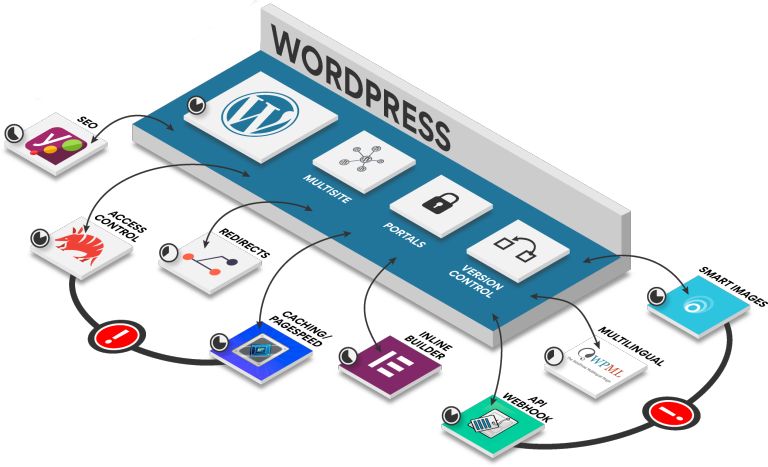
But Wordpress is for free....
Although WordPress may seem free at first glance, there are hidden costs associated with building, maintaining, and hosting a website on this platform. These include domain registration, web hosting, premium themes and plugins, security, and maintenance. Moreover, managing WordPress-related matters, such as plugins and spam, requires time and effort, which can lead to higher setup and maintenance costs.
On the other hand, Plate CMS offers a license that includes all essential services and features in one package. This encompasses upgrades, security, spam protection, premium hosting, and integrated features, providing a streamlined and efficient experience. While there are license fees involved, Plate delivers a comprehensive package without hidden costs, which can be a better investment in the long run.
In short, Plate CMS offers a user-friendly, all-in-one solution that can be a better investment compared to the hidden costs and complexity of WordPress.
.png?width=768&mode=fit&format=png&signature=aa2609df123afc5f2cc481c1dfce95887f6e853a)
When do you choose which multisite CMS?
If you have in-house developers with WordPress knowledge as an organization, a WordPress multisite setup can be a good solution. If an update causes a feature on the websites to stop working, you can do a good job of fixing it yourself. If that's not the case and you have to hire an outside developer, you'll probably need a solid SLA because regular updates to WordPress are necessary to maintain the multisite solution and cover the security risks of "open source.
Don't employ your own developers and are looking for a CMS that basically has all the elements of multisite, multicontent and multilanguage in it and is also easy to use? Then Plate is your best choice. All major multisite features are present within the CMS and require little maintenance. This makes the TCO (Total Costs of Ownership) for a serious multisite configuration significantly lower if you choose Plate.
👇 A sample of the > 1000 Plate customers
"Plate is extremely strong at managing content in multi-channel CMS environments. It's super flexible to scale and very user-friendly. It gives you the freedom to manage and publish content across multiple channels and you are truly in control of your content and website, without limitations."

Edward Rozendaal
Marketing Manager 9altitudes
